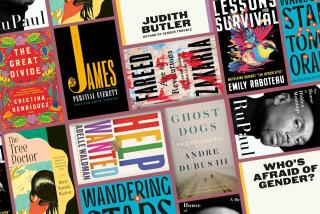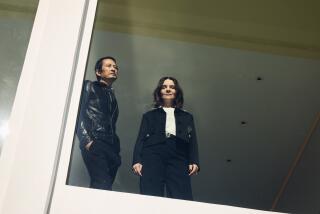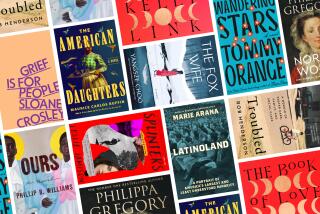Discoveries: ‘What Is This Thing Called Love?’ by Gene Wilder
What Is This Thing Called Love?
Stories
Gene Wilder
St. Martin’s: 160 pp., $19.99
“It was cold and raining at four in the morning when Buddy walked out of Caesars Palace, stark naked except for the L.A. Times wrapped around his waist.” These sweet, hilarious stories about love are dedicated to Gene Wilder’s cousin Buddy: “When he was alive he really wanted love, but settled only for sex.” Many are about the time wasted by lovers who choose to hide their true feelings — Jane Austen without the happy endings. “She pretended to be a big flirt and I knew she really wasn’t.” Some are about unrequited love: “I asked Melanie to marry me when she came to my house for dinner.… Melanie just giggled. I was three and a half years old.” Others illuminate the myriad differences between book love or screen love and the real, awkward world of miscommunication and lost opportunities. All together, they serve as a lighthearted reminder of love’s potential (requited, even unrequited) to make a life worthwhile.
A Funny Thing Happened on the Way to the Future
Twists and Turns and Lessons Learned
Michael J. Fox
Hyperion: 100 pp., $17.99
Michael J. Fox dropped out of high school in 11th grade to be an actor. “My purpose in writing this book is not to offer advice,” he warns. “If anything, this is a book that tells you that you don’t need a book.” “A Funny Thing” is about the lessons Fox learned outside the classroom — chapters are organized by subject: Comparative Literature, Economics, Geography, etc. “Most of what I know about economics,” he writes, “I learned from Alex P. Keaton. My years of playing the archconservative, Milton Friedman-loving young capitalist gave me a passing familiarity with terms like ‘supply and demand,’ ‘gross national product,’ and ‘trickle-down economics.’ ” The book comes perilously close to promoting (despite disclaimers to the contrary) the idea of skipping formal education altogether but is redeemed by Fox’s trademark cheerfulness (which hasn’t flagged in the face of Parkinson’s): “Don’t spend a lot of time imagining the worst-case scenario… When things go bad, don’t run, don’t hide. Stick it out and be scrupulous in facing every part of your fear. Try to be still.”
This Time Together
Laughter and Reflection
Carol Burnett
Harmony Books: 268 pp., $25
“The Carol Burnett Show,” and other old-style variety shows like it, Carol Burnett imagines in “This Time Together,” could never “see the light of day today. The networks just aren’t there for that kind of programming.” This gives her new memoir a bittersweet quality, as if the innocence and gentleness of television’s early days are gone forever, replaced by high-speed chases and clever dialogue too fast to follow. These short memories, of the people Burnett met and interviewed over the years, on- and off-camera, bring it back — the golden age of variety shows. They’re all here: Meeting John Steinbeck in the elevator of her apartment building on Manhattan’s 72nd Street; working as an usherette in the Warner Bros. theater on Wilcox Avenue and Hollywood Boulevard; her experiences with Laurence Olivier, Walter Matthau, Carol Channing, Joan Crawford, Julie Andrews and more. Burnett has a writer’s eye for the moment, the detail, the slip that reveals character. She’s never mean and always grateful.
Salter Reynolds is a writer in Los Angeles.
More to Read
The biggest entertainment stories
Get our big stories about Hollywood, film, television, music, arts, culture and more right in your inbox as soon as they publish.
You may occasionally receive promotional content from the Los Angeles Times.






